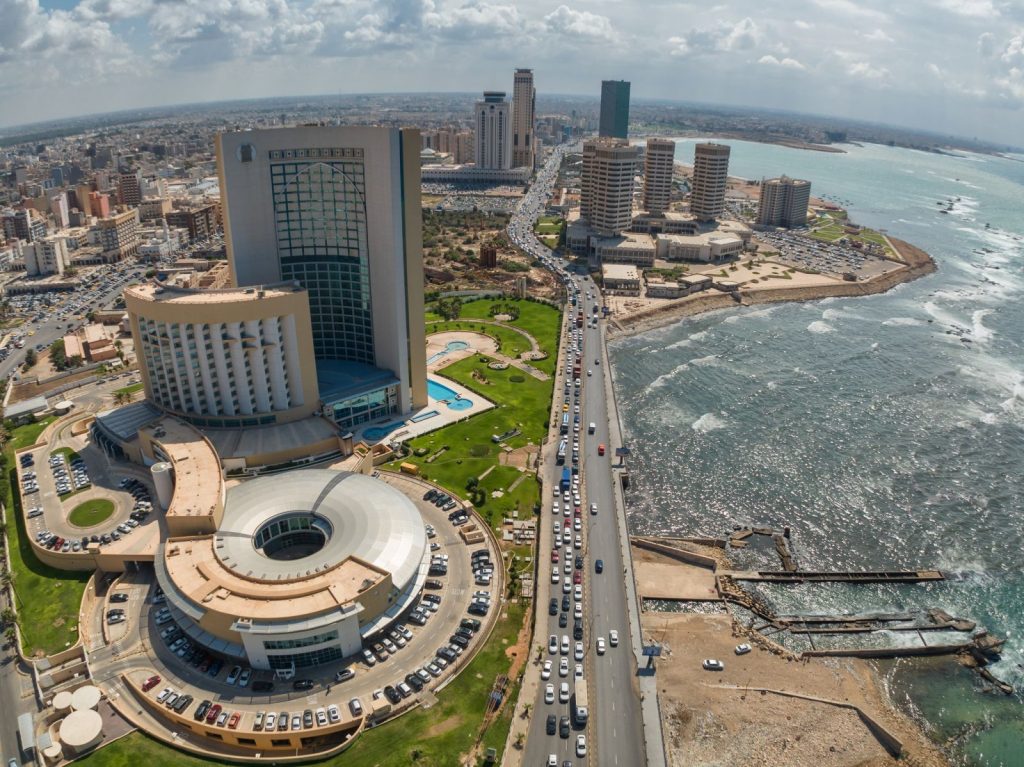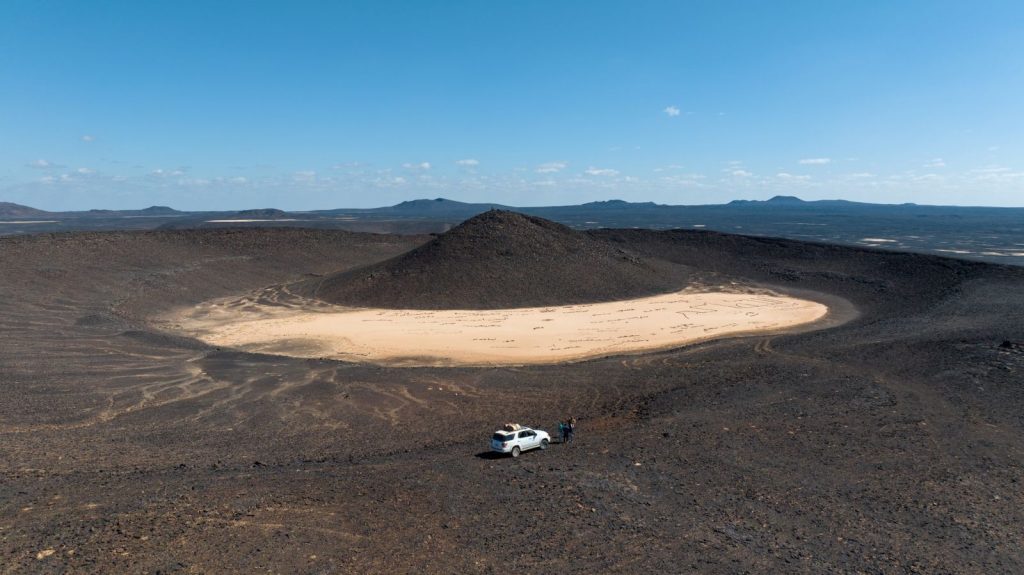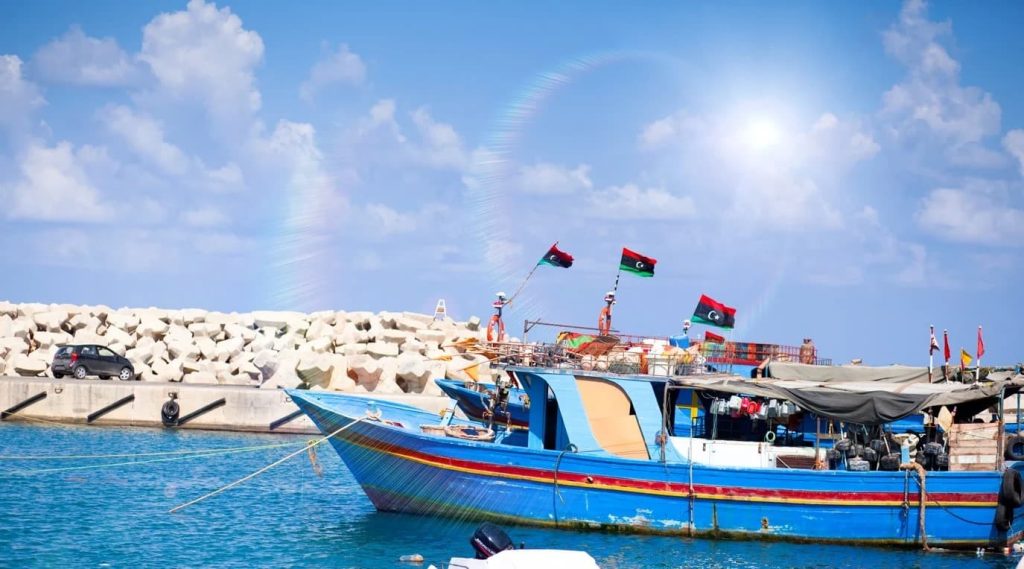In the dynamic landscape of Libya’s telecommunications, AlMadar and Libyana stand as the two titans vying for dominance. Despite the challenges of operating amidst a civil war, both operators have made significant strides in improving mobile services. AlMadar, Libya’s first and smallest operator, recently restored mobile services to Sirte, a city that had been cut off for months due to conflict. This achievement underscores the resilience and progress within the sector.
When it comes to video experience, AlMadar edges out Libyana with a score of 38.1 points, though both fall into the ‘Poor’ category. However, in Tripoli, AlMadar’s score jumps to 46.9, offering a ‘Fair’ experience. Meanwhile, Libyana leads in download speeds in the capital, boasting 5.2 Mbps, just ahead of AlMadar. These metrics highlight the competitive nature of Libya’s telecom market, where both operators continue to push boundaries despite the odds.
Table of Contents

Network Performance
In Libya’s telecommunications sector, network performance is a critical factor for users when choosing between AlMadar and Libyana. Each operator offers unique strengths in various aspects of network performance.
Download Speed Experience
We observed that download speeds, though modest by international standards, see AlMadar with a slight edge over Libyana in terms of overall speed. AlMadar users experience average speeds of 4.4 Mbps, which is a modest 0.4 Mbps lead over Libyana users who have 3.9 Mbps. However, when focusing solely on 4G download speeds, Libyana users enjoy an advantage with their speeds being 1.1 Mbps faster than those of AlMadar. This might appeal to users who rely heavily on 4G connectivity for quick downloads.
Upload Speed Experience
Upload speed is gaining attention as users increasingly create content. When we examine the 4G upload speeds, Libyana again places ahead with speeds of 4.7 Mbps, slightly higher than AlMadar’s 4.0 Mbps. On the 3G network, AlMadar presents an average upload speed of 0.8 Mbps, which is double that of Libyana’s 0.4 Mbps. These statistics highlight the considerations for content creators who need efficient uploading options.
Video Streaming Quality
The perceived quality of video streaming is a significant aspect of network experience. AlMadar slightly outperforms Libyana in video experience, although both operators fall into the ‘Poor’ category overall. Users in Tripoli might find AlMadar’s ‘Fair’ rating for video experience preferable, which suggests a more stable performance in that region.
Gaming Performance
For gamers, network performance can greatly influence their experience. AlMadar has won the Games Experience Award with a score of 37 points, surpassing Libyana by 5.5 points. However, both remain in the ‘Very Poor’ category for gaming support, receiving scores under 40. This indicates substantial room for improvement in this area for both competitors. They would need to enhance network latency and consistency to better support online gaming activities.
By examining these facets of network performance, users can start to understand each operator’s suitability to their needs without necessarily declaring one superior to the other.

Coverage and Availability
In the dynamic landscape of Libya’s telecommunications, coverage and availability play vital roles in determining user satisfaction. Both AlMadar and Libyana offer unique experiences, reflected in their respective strengths and challenges in this domain.
4G Availability
Assessing the 4G availability highlights a critical facet of user experience. AlMadar scores an impressive 3.8 out of 10 in the 4G Coverage Experience metric. This measures the extent to which customers have access to 4G in significant everyday locations. In contrast, Libyana trails with a score of 3.4. This metric gives valuable insight into how well users can access a 4G connection in their regular locales rather than sheer geographic extent. The scores indicate AlMadar customers have a higher likelihood of maintaining a 4G connection during their daily activities.
Network Coverage
Network coverage, evaluated by where users can connect to the network most effectively, also sees AlMadar gaining an edge. The approach focuses on user-centric locations rather than geographical spread. The score showcases that AlMadar customers enjoy reliable connectivity in frequented areas, while Libyana remains a competitive player despite a slight lag. The evaluation captures the true essence of what end-users experience in terms of connectivity in important places such as where they live, work, and travel. This nuanced understanding underscores the areas where both operators excel and face hurdles, adding depth to how users might experience mobile services in Libya.
User Experience
Navigating the world of telecommunications in Libya, users often find themselves juggling between AlMadar and Libyana. Each operator offers a distinct user experience shaped by various aspects like ease of use and customer support.
Ease of Use
When it comes to ease of use, both AlMadar and Libyana attempt to prioritise user accessibility through their services and platforms. AlMadar has developed a straightforward user interface within its mobile app, which allows customers to manage their accounts, monitor usage, and pay bills with relative ease. The app’s design focuses on clear navigation, ensuring that even the less tech-savvy among us can navigate the offerings without much hassle.
Libyana, on the other hand, offers a more comprehensive mobile app experience, packed with additional features such as bundled packages and customised recommendations. While this adds value for users seeking more information and control over their services, some might find the interface slightly overwhelming due to its broad range of options. Nevertheless, both operators aim to simplify user interactions through digital means, albeit with distinctive approaches.
Customer Support
In a market where immediate assistance can elevate the user experience, customer support plays a pivotal role. AlMadar has invested in enhancing its customer service with a focus on quick and efficient problem resolution. Customers often appreciate the responsiveness of AlMadar’s support team, who are available through multiple channels, including phone and social media.
On the contrary, Libyana prides itself on offering extensive customer support services with a broad array of contact options covering phone, online chat, and in-store assistance. This multifaceted approach ensures that customers can receive help in the most convenient manner available to them. Libyana’s in-store support is particularly noted for providing personalised service, assisting users who prefer face-to-face communication.
Ultimately, while both AlMadar and Libyana strive to offer superior customer support, their strategies cater to different user preferences. AlMadar focuses on prompt resolution, whereas Libyana provides diverse contact methods to suit varying customer needs.

Benefits and Drawbacks
When exploring the telecommunications sector in Libya, both AlMadar and Libyana present unique benefits and drawbacks. Each operator has distinct strengths that cater to different user preferences.
Advantages
AlMadar displays several advantages in its service offerings. Its overall download speed has a slight edge over Libyana’s, averaging at 4.4 Mbps. The company has also proven its resilience by restoring services in conflict-affected areas like Sirte. Moreover, AlMadar provides better 4G coverage experience with a score of 3.8, making it a more accessible choice in various everyday locations. Additionally, its straightforward mobile app enhances ease of use for customers, who can manage their accounts effortlessly.
Meanwhile, Libyana excels in 4G download and upload speeds. With an exceptional 4G download speed, Libyana is 1.1 Mbps faster than AlMadar, appealing to users seeking quick data transfer rates. This operator also shines in customer support, offering a wider array of contact options such as in-store assistance, which caters to users preferring face-to-face interaction. Its feature-rich app, though potentially overwhelming, provides extensive functionalities for those who value a variety of features in mobile management.
Disadvantages
Despite these strengths, each operator faces certain drawbacks. AlMadar, while offering a better video experience in Tripoli, still only secures a ‘Fair’ rating and is considered ‘Poor’ overall, highlighting a room for improvement in video streaming quality. Additionally, AlMadar’s upload speed with 3G technology lags behind Libyana’s superior 4G upload speed.
For Libyana, the key disadvantages revolve around its slightly lower total download speed compared to AlMadar, standing at 3.9 Mbps. This may affect users who prioritise consistent overall performance in various aspects of connectivity. Furthermore, its network coverage is less robust, leading to minor connectivity issues in frequently visited areas. Lastly, the complexity of its app could deter users who prefer a simpler interface for managing their mobile services.
Both AlMadar and Libyana offer compelling reasons to consider their services, shaped by both benefits and potential challenges for consumers.

Comparisons and Alternatives
The Libyan telecommunications landscape primarily revolves around AlMadar and Libyana but exploring how these operators stack up against international standards and potential alternatives provides valuable insights for users.
Comparison with Other Providers
Compared to major global carriers, both AlMadar and Libyana have room for growth in terms of network speed and service reliability. Globally recognised providers often offer download speeds exceeding 20 Mbps, especially in urban areas. This benchmark highlights the considerable gap that AlMadar and Libyana need to bridge, given their current averages of 4.4 Mbps and 3.9 Mbps, respectively.
In terms of video and gaming experiences, international operators frequently provide HD streaming capabilities and low-latency gaming environments. While AlMadar holds a slight lead in video streaming quality locally, both Libyan operators are rated as ‘Poor’, contrasting sharply with the expectations set by global standards. Similarly, for gamers, the ‘Very Poor’ ratings received by both indicate that neither provider offers a competitive gaming experience compared to international peers, where seamless and interactive support is more common.
Alternative Options
For those considering alternatives, satellite providers and emerging technology services can be potential options. Satellite internet providers, while often more expensive, offer broader coverage that could suit users in rural or underserved areas where AlMadar and Libyana might not reach. These services provide stable connections but typically come with higher latency and costs.
Additionally, internet service providers (ISPs) using fibre-optic technology offer a more stable and faster alternative for home and business use, albeit limited to specific areas. These can significantly outpace the mobile data speeds currently offered by AlMadar and Libyana, making them a viable alternative for users prioritising high bandwidth and consistent performance.
Exploring these comparisons and alternatives helps us understand where AlMadar and Libyana stand and what opportunities exist for more diverse connectivity solutions in Libya.
Conclusion
As we navigate the dynamic landscape of Libya’s telecommunications sector, it’s clear that both AlMadar and Libyana are making strides despite the challenges. AlMadar impresses with its resilience, superior download speeds, and user-friendly app, while Libyana shines with its 4G capabilities and extensive customer support. Both operators face hurdles in meeting international standards, yet they continue to push boundaries in their offerings. For those seeking alternative connectivity solutions, satellite and fibre-optic options present viable choices, albeit with their own considerations. Ultimately, the choice between AlMadar and Libyana depends on individual priorities, be it speed, coverage, or customer service.

Frequently Asked Questions
What are the main telecom operators in Libya?
The two main telecom operators in Libya are AlMadar and Libyana, which dominate the telecommunications landscape in the country despite ongoing challenges.
Which operator has better download speeds in Libya?
AlMadar slightly outpaces Libyana in overall download speeds, averaging 4.4 Mbps compared to Libyana’s 3.9 Mbps. However, Libyana excels in 4G download speeds.
How do AlMadar and Libyana compare in video streaming quality?
AlMadar holds a slight edge over Libyana in video streaming quality, particularly in Tripoli, though both are rated as ‘Poor’ compared to international standards.
Which operator provides better gaming support?
AlMadar outperforms Libyana in gaming support and has won the Games Experience Award, although both receive a ‘Very Poor’ rating for gaming.
What is the 4G coverage experience for AlMadar and Libyana?
AlMadar scores 3.8 out of 10 in the 4G Coverage Experience metric, indicating better access to 4G in everyday locations than Libyana, which scores 3.4.
How does customer support differ between AlMadar and Libyana?
AlMadar focuses on quick problem resolution and offers a user-friendly mobile app, while Libyana provides extensive customer support options, including in-store assistance.
What are the key advantages of Libyana over AlMadar?
Libyana excels in 4G download and upload speeds and offers diverse customer support solutions, though its app may be perceived as complex by some users.
Are there alternative internet options available in Libya?
Yes, users seeking alternatives can explore satellite internet providers and fibre-optic ISPs, which offer broader coverage and faster speeds, albeit at higher costs and latency.



